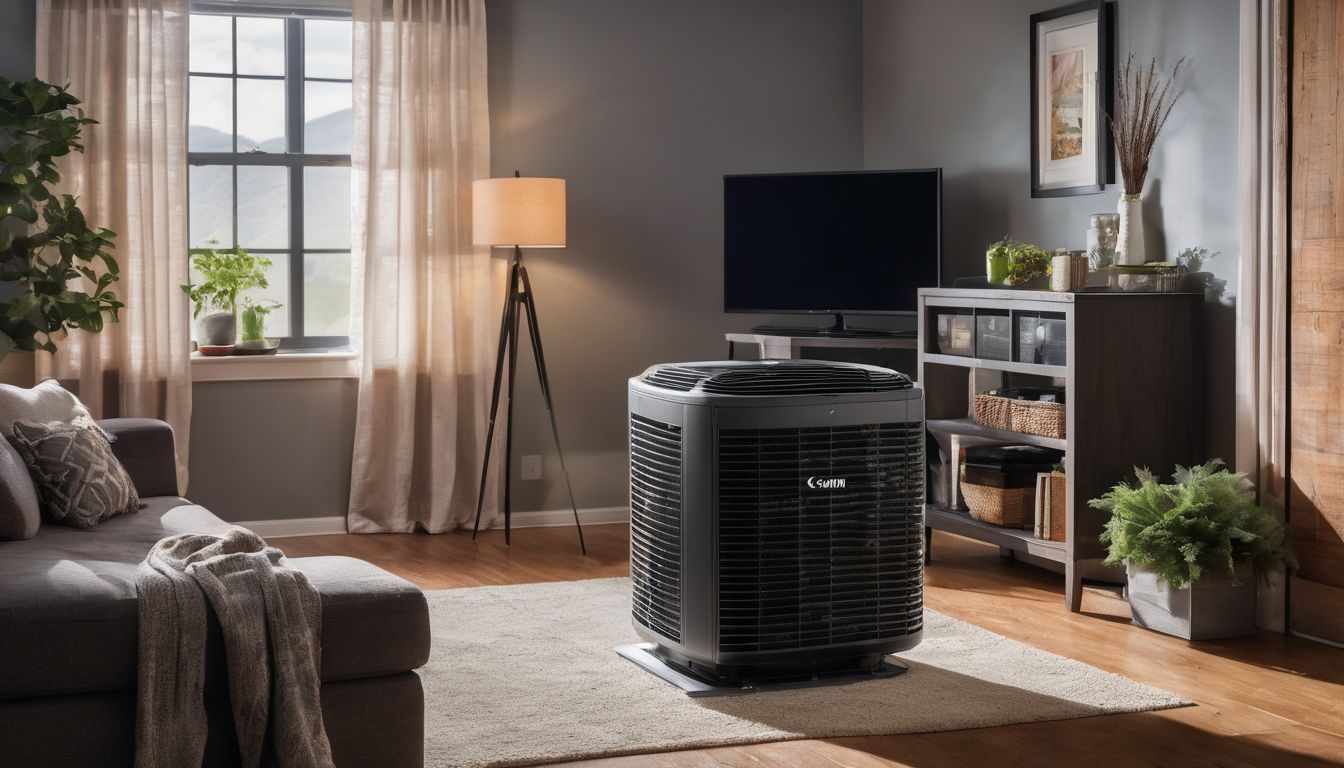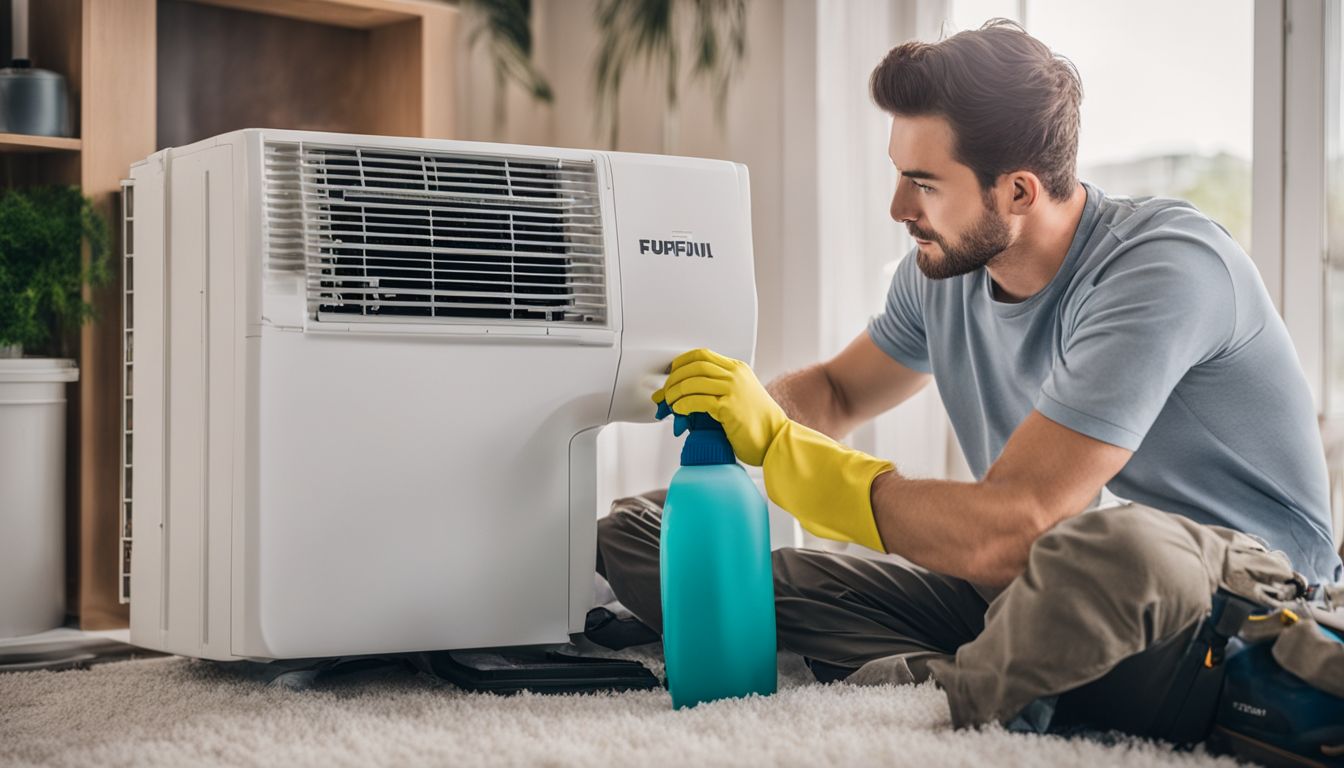Are your bills soaring high each month? Proper heating and cooling unit installation can cut energy costs by up to 30%. Our blog reveals the expert tips and tricks professionals use to improve energy efficiency at home.
Discover wallet-friendly solutions ahead.
Understanding Utility Bills
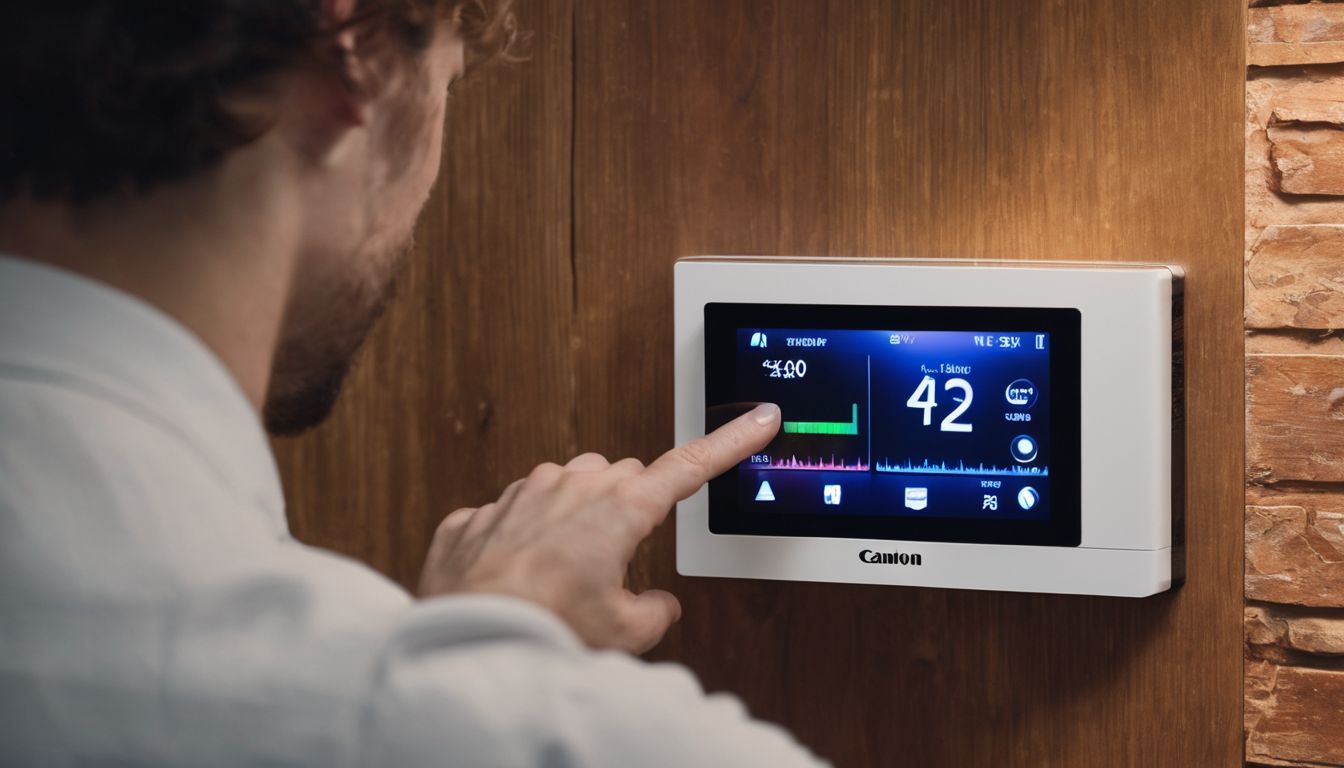
Utility bills often include charges for electricity, water, and gas based on how much you use. Electricity prices hinge on several factors such as the time of use, with peak hours typically costing more.
Energy tariffs fluctuate too; some are fixed while others vary depending on market conditions or even the type of energy used, like renewable sources versus fossil fuels.
Being mindful of your energy consumption helps spot trends in your usage patterns. Smart thermostats and energy-efficient appliances can make a big difference in managing these costs effectively.
They work by reducing wasted energy when you’re not home or when appliances don’t need to run at full capacity. Appliances that carry the ENERGY STAR label meet strict criteria set by the U.S. Department of Energy and the Environmental Protection Agency (EPA), ensuring they consume less power than their conventional counterparts.
Importance of Professional Installation
Professional installation proves crucial in maximising your home’s energy efficiency, as experts bring precision and advanced knowledge to ensure systems perform at their best. This not only enhances comfort but directly translates into reduced utility bills through optimal use of energy-saving techniques and materials.
Efficiency and Precision
Efficiency in installation means getting the job done right the first time. Expert installers have a deep knowledge of energy-saving techniques, crucial for optimising your home’s heating and cooling systems.
They come equipped with precise tools, ensuring that everything from air ducts to door frames seals tightly. This precision minimises drafts and energy loss.
Precision is not just about accurate fitting; it also involves installing advanced equipment like programmable thermostats and home automation systems to streamline energy use. Customised installations by professionals adapt technology to your unique household needs, delivering improved operational efficiency.
With their expertise, they maximise the R-value of insulation materials and ensure that energy-efficient windows are perfectly set to reduce heat transfer, cutting down on overworked HVAC systems and unnecessary electricity tariffs.
Knowledge of Energy-Saving Techniques
Professional installers bring a wealth of energy-saving techniques to the table, which can dramatically slash your utility bills. They’re experts in spotting and fixing electricity vampires—those appliances that drain power even when they’re turned off.
By choosing energy-efficient options like LED bulbs, and smart thermostats, and installing insulation where it’s needed most, they prevent unnecessary waste of electricity and reduce costs.
They also have the know-how to implement advanced systems such as heat pumps and solar photovoltaic systems efficiently. These trained pros understand the dynamics of heating and air conditioning, ensuring your home stays comfortable without overworking the system or driving up energy usage.
With their guidance, you might find yourself reaping benefits from state and local incentives for making green choices—a win for both your wallet and the planet.
Common Installation Mistakes and How to Avoid Them
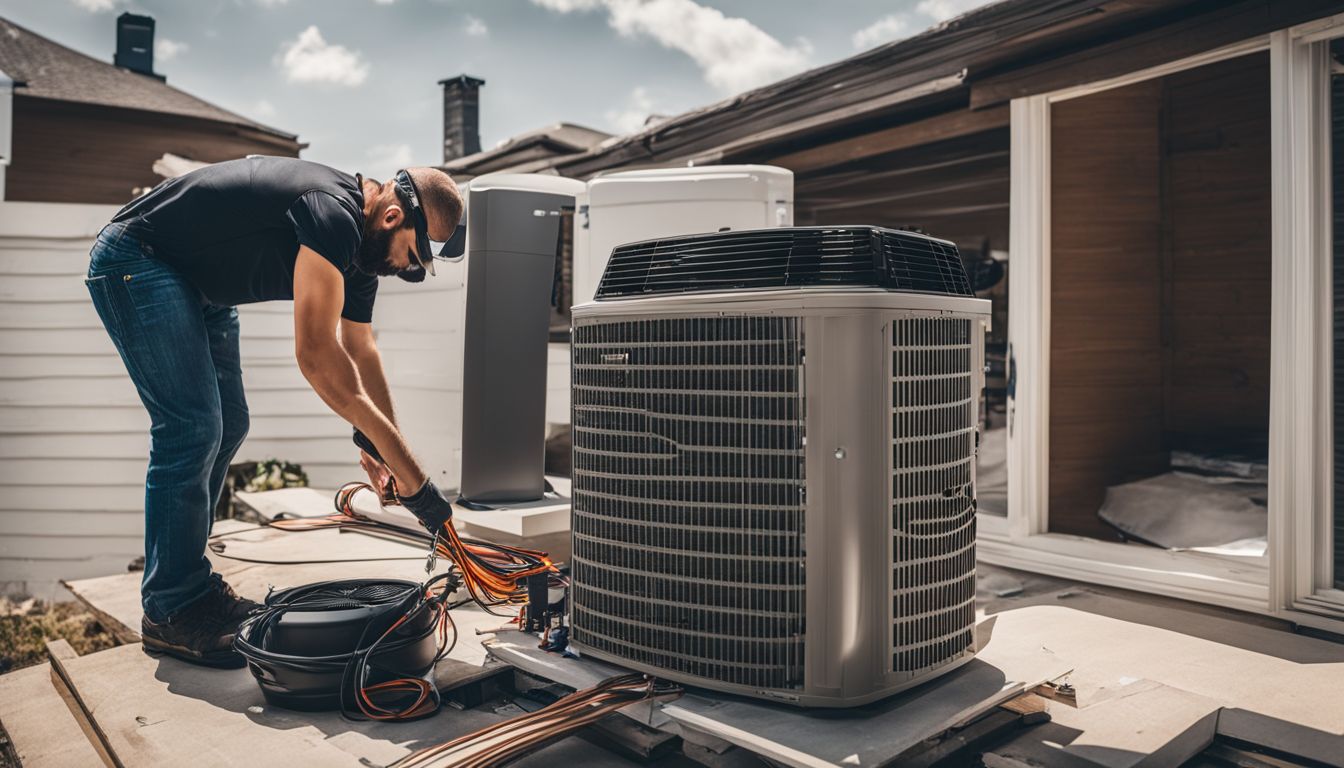
Selecting the right size for your air conditioner is crucial. An improperly sized system leads to inefficiency and inflated bills. Professionals use detailed calculations to determine the exact capacity needed for your space.
They take into account room dimensions, window sizes, and other factors that can affect performance.
Mistakes with window installations come from incorrect measurements or poor fitting which can cause draughts or heat loss. Proper installation ensures windows are airtight and energy-efficient, keeping out unwanted weather while retaining indoor comfort levels.
Hiring an expert means precise measurements and skilled fitting of all types of windows, whether double-glazed for insulation or skylights for natural lighting.
Aircon units need proper sealing around pipes and correct electrical connections to operate safely and effectively. Cutting corners in sealing can lead to moisture problems while improper wiring poses safety hazards and may reduce efficiency.
Technicians follow strict guidelines during installation, ensuring every seal is tight and every wire is properly connected.
Choosing an experienced HVAC installer eliminates common errors like selecting the wrong unit size or opting for low-quality systems just because they’re cheaper. Correctly sized HVAC systems maintain desired temperatures without overworking, contributing substantially to energy savings.
Ground electrical systems must be installed correctly to prevent shock risks and ensure they handle power surges appropriately. A qualified electrician understands grounding requirements thoroughly, providing peace of mind alongside increased safety in your home’s energy setup.
How Professional Installation Cuts Your Bills
Discover how expert installation can trim your energy expenses by enhancing home efficiency, and get ready to dive into the specifics that promise long-term savings on your utility bills.
Insulation and Air Sealing
Insulation and air sealing are like putting a warm coat on your house. They keep the heat in during winter and out during summer, so your heating and cooling systems don’t have to work overtime.
Sealing leaks around windows, doors, and ductwork stops cold drafts from sneaking into your home. It also prevents warm air from escaping. This means you’re not wasting money heating the great outdoors.
Adding insulation to walls, attics, basements, and crawl spaces ensures that once the air inside is heated or cooled, it stays that way longer. Homeowners who take these steps can see their energy bills drop significantly – as much as 15% for some! With less strain on your HVAC system and more consistent indoor temperatures, both your wallet and comfort level will thank you for making this smart investment in energy efficiency.
Efficient Heating and Air Conditioning Systems
Upgrading to an efficient heating and air conditioning system is a smart way to slash your energy bills significantly. The Department of Energy highlights that modern HVAC systems can reduce electric costs by as much as 40%.
Such reductions are huge, considering about 43% of our home utility bill typically goes toward heating and cooling expenses. By investing in ENERGY STAR-qualified units, homeowners could see annual savings exceeding $115.
Correct installation is crucial for reaping the full benefits of these sophisticated systems. The EPA warns that improperly installed equipment may hamper energy efficiency. Choose professionals who can ensure precision fitting of your new system; this will keep your house comfortable while conserving power and saving money month after month.
Heat pump water heaters or air-source heat pumps are also excellent alternatives that blend advanced technology with eco-friendliness, giving you further control over spiralling electricity costs without compromising on comfort levels within your home.
Energy-Efficient Windows and Doors
Energy-efficient windows and doors play a pivotal role in reducing your home’s energy consumption. By installing ENERGY STAR-rated options, you can slash the cost of your annual energy bills significantly.
These high-performance products are designed to keep heat in during winter and out during summer, improving comfort while using less energy for heating and cooling.
Professionally installed double-glazed windows, which include two layers of glass with a space between them, act as insulators against outside temperatures. Sealing gaps with a draught excluder also prevents draughts that can drive up your heating bill.
Not only do these smart choices help in managing indoor climate more effectively, but they also contribute to a lower carbon footprint by cutting down on fossil fuel use linked to power generation for homes.
Optimal Water Heater Installation
Choosing the right professional for your water heater installation ensures safety and cost savings. In Los Angeles, certified technicians follow strict protocols to avoid hazards and ensure proper functioning.
They consider factors like energy consumption to position the unit optimally for maximum efficiency. This careful placement can significantly reduce both your water and energy bills.
Skilled installers also focus on fine details such as insulating pipes and checking for any air leaks that could impact performance. With a properly installed demand water heater, you experience immediate dividends through increased energy efficiency.
Regular maintenance further enhances this benefit, making sure your system operates at peak conditions all year round, saving you money on unnecessary repairs or energy wastage.
The Impact of Renewable Energy Installations
The integration of renewable energy systems, such as solar and wind power, into your home, not only reduces dependence on traditional energy sources but also significantly curtails monthly utility expenses by harnessing natural elements.
Transitioning to these sustainable installations can lead to long-term financial benefits and contribute to a greener footprint.
Solar Panels
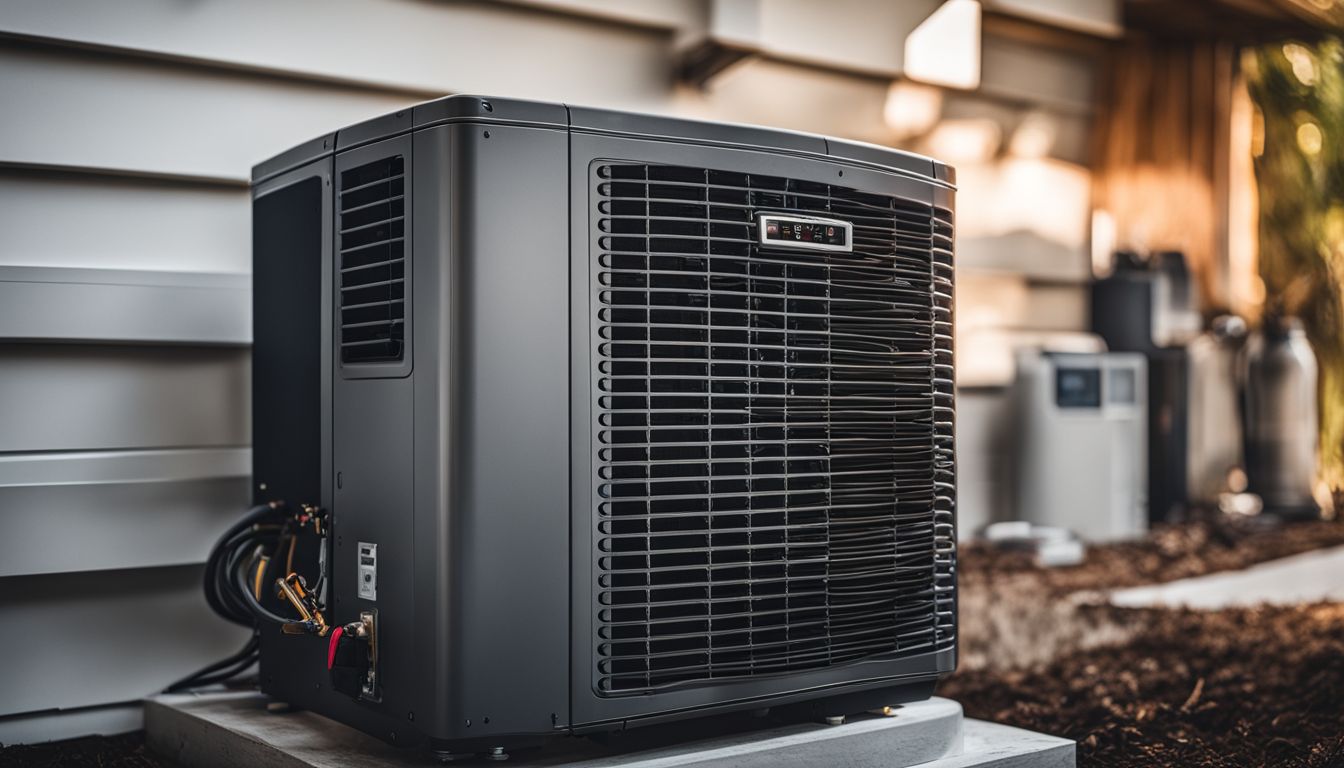
Harnessing solar power through solar panels is an effective way to slash your electricity expenses and shrink your carbon emissions. Professional installation ensures these panels operate at peak efficiency, turning sunlight into clean energy for your home.
Opt for certified experts who can position the panels correctly to capture maximum rays throughout the year.
Investing in solar technology pays off by providing you with predictable energy output and less dependency on traditional power sources. It’s not just about immediate savings; it also boosts your property value significantly.
Panels are designed to take up minimal space and work silently, delivering green energy directly from the sun while dramatically reducing household consumption and harmful emissions.
Wind Turbines
Wind turbines offer a clean and sustainable way to generate electricity. These powerful machines convert the kinetic energy of wind into mechanical power, which then gets turned into electric power by a generator.
With utility-scale installations in 42 states across the US, they’re making significant strides as a leading renewable energy source.
Installing wind turbines could massively reduce your reliance on traditional power sources and cut down your bills. The technology behind these structures is constantly evolving, pushing forward the boundaries of wind energy efficiency.
Opting for this form of renewable power is not only good for the environment but also beneficial for long-term energy savings at home or in business settings.
Essential Regular Maintenance
Regular maintenance isn’t merely a chore; it’s an investment in sustained savings. By keeping systems in prime condition, you dodge costly emergencies and prolong the lifespan of energy-saving installations.
HVAC System Maintenance
Taking care of your HVAC system isn’t just about comfort; it’s a smart financial move. By adhering to a maintenance plan, you could see energy bills plummet by as much as 50%. This involves routine checks and tweaks that keep the system running at peak efficiency.
Things like duct sealing, replacing dirty filters, and ensuring thermostats are accurately calibrated can make all the difference.
Servicing your HVAC unit regularly not only slashes costs but also prolongs its life – potentially adding up to 30% more years of service. Plus, this diligent attention results in lower greenhouse gas emissions from your home, aligning with environmental sustainability goals.
It’s clear: investing in preventative care for your heating, ventilation and air conditioning setup promotes healthier air indoors while keeping those utility bills in check.
Regular Upgrades
Regular upgrades play a crucial role in keeping your energy bills low. By installing the latest energy-efficient equipment like cool roofs, compact fluorescent lamps, and high-efficiency heating and cooling systems, you ensure that every component operates at peak performance.
This means less energy is wasted and more money stays in your pocket.
Upgrading to smarter technologies such as programmable thermostats or advanced insulation materials can lead to even greater savings. Think about swapping out old appliances for newer models with better energy ratings – fridges, freezers, and air-conditioning units are prime examples where this strategy pays off.
Regularly updating these items not only reduces power consumption but also keeps maintenance costs down since modern machinery often requires fewer repairs than older versions. Keep abreast of the latest advancements in solar-energy tech or invest in geothermal heat pumps for sustainable options that offer long-term benefits both to your wallet and the environment.
Conclusion
In conclusion, entrusting experts to fit your home’s systems pays off with lower expenses. They seal and insulate your space expertly, boosting efficiency and slashing costs. With their touch, HVAC units perform optimally, reducing energy waste and saving you money every month.
By choosing professional installation today, you invest in a future of financial savings and greener living. Don’t let amateur errors drain your wallet; opt for skilled installation for lasting economy and comfort.
Avoid the common pitfalls by learning about air conditioning installation blunders that could end up costing you more.
FAQs
1. Why is a professional energy audit important for cutting bills?
A professional energy audit can identify ways to make your home more energy-efficient, potentially saving you money on electricity and heating bills.
2. How do tankless water heaters cut costs compared to traditional tank models?
Tankless water heaters provide hot water on demand without constantly heating a large tank, making them more energy-efficient and cost-effective than electric resistance heaters or old tank models.
3. Can installing metal roofs save me money in the long run?
Yes, metal roofs reflect sunlight, which can reduce cooling costs significantly; plus they often qualify for solar renewable-energy certificates due to their energy efficiency.
4. What are tubular daylighting devices and how do they reduce my lighting bill?
Tubular daylighting devices channel natural light into your home, decreasing the need for electric lights during the day and cutting down on your use of light bulbs and compact fluorescent lights (CFLs).
5. Will switching to an induction cooktop from an electric heater impact my power usage?
Switching from traditional electric space heaters or gas furnaces to an induction cooktop can offer precise temperature control with less wasted heat, leading to lower power consumption.
6. Does insulation like spray foam contribute to lower heating and oil prices at home?
Properly insulating your home with materials such as spray foam keeps it warmer in winter and cooler in summer, reducing reliance on central air conditioners or space heaters thus contributing to lower overall fuel expenses.

